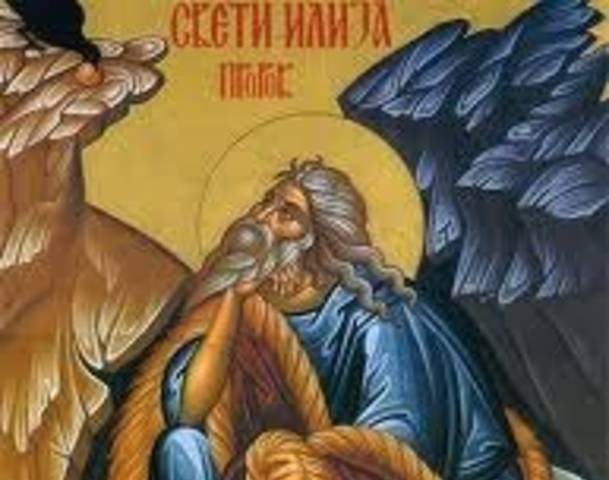

Elijah the Prophet is said to have written “a little book.” Jesus made specific reference to it when he admonished the Pharisees in the Gospel of Barnabas. While scholars disagree about its origin and authenticity – its teachings are simple and direct and speak to the heart. It is said to include “wisdom and knowledge” and teach men how to live a simple, holy and righteous life before God.
Elijah, the Prophet is said to have written a mysterious “little book.” The little book is said to have included “all human wisdom” and have puzzled scholars for hundreds of years who debate about its authenticity.
Mention of it is made specifically in “the Gospel of Barnabas.”
The little book contains a series of simple commandments and precepts, which are very easy to understand – even by a child.
Jesus mentions it when he was admonishing the Pharisees in the Gospel of Barnabas:
“I do not hold the religion of the true Pharisees in re-probation but in approbation and for that I am ready to die. But come, let us see if you are [true] Pharisees”, he said.
Jesus continues: “Elijah, the friend of God, at the prayer of his disciple Elisha, wrote a little book in which he included all human wisdom with the Law of God our Lord.”
Here Jesus uses the little book as a standard by which we could measure a “true Pharisee.”
The word “Pharisee” as it is commonly understood was not meant to be an insult, as it is today by Christians – it was high praise!
When Jesus criticized the Pharisees, he was actually challenging their ideals and core concept of what holiness and faithfulness looked like.
The Pharisees (Latin: pharisæus, –i; from Hebrew: פְּרוּשִׁים pĕrûšîm, pl. of פָּרוּשׁ pārûš, meaning “set apart”) were at various times a political religious party, and a powerful social movement among Jews during the Second Temple period – beginning under the Hasmonean dynasty (140–37 BCE) in the wake of the Maccabean Revolt.
What follows is the exact wording of the text as found in the Gospel of Barnabas:
“Elijah, servant of God to all them that desire to walk with God their creator, writes this:
Whoever desires to learn much, they (sic) fear God little, because he who fears God is content to know only that which God wills. They that seek fair words do not seek God, who does nothing but reprove our sins.
They that desire to seek God, let them shut fast the doors and windows of their house, for the master does not suffer himself to be found outside his house [in a place] where he is not loved.
Therefore guard your senses and guard your heart, because God is not found outside of us, in this world in which he is hated.
They that wish to do good works, let them attend to their own selves, for [there is no profit] in gaining the whole world and losing one’s own soul.
They that wish to teach others, let them live better than others, because nothing can be learned from him who knows less than ourselves. How shall the sinner amend his life when he hears one worse than he teaching him?
They that seek God, let him (sic) flee the conversation of men; because Moses being alone upon Mount Sinai found him and spoke with God, as does a friend who speaks with a friend.
They that seek God, shall come forth [to where] there are men of the world only once in [every] thirty days for in respect of the business of him that seeks God works for two years can be done in one day.
When he walks, let him not look save at his own feet.
When he speaks, let him not speak save that which is necessary.
When they eat, let them rise from the table still hungry; thinking every day not to attain to the next; spending their time as one draws his breath.
Let one garment, of the skin of beasts, suffice.
Let the lump of earth sleep on the naked earth [and] for every night let two hours of sleep suffice.
Let him hate no one save himself; condemn no one save himself.
In prayer, let them stand in such fear as if they were at the Judgment to come.
Now do this in the service of God, with the Law that God has given you through Moses, for in this way you shall find God [so] that in every time and place you shall feel that you are in God and God [is] in you.”
This completes the little book of Elijah….
